A round-up of the best works of art to enter public collections recently
British Museum, London
103 drawings by Katsushika Hokusai
In the years directly before his Thirty-six Views of Mount Fuji (c. 1831) established his lasting fame, Hokusai lost his second wife, suffered a stroke, and declared himself destitute, bankrupted by his grandson’s gambling habit. Accordingly, art historians had quite readily believed that the late 1820s were an unproductive period for the 70-year-old painter – but last year, a tranche of 103 forgotten drawings was rediscovered in a private collection in Paris. Created in 1829 for an unpublished work called the Great Picture Book of Everything, the drawings – which were last recorded in 1948 – depict a vast range of flora, fauna, landscapes and legends, including an origin myth that traces the birth of human culture to ancient China. The drawings have been acquired by the British Museum with support from the Art Fund.
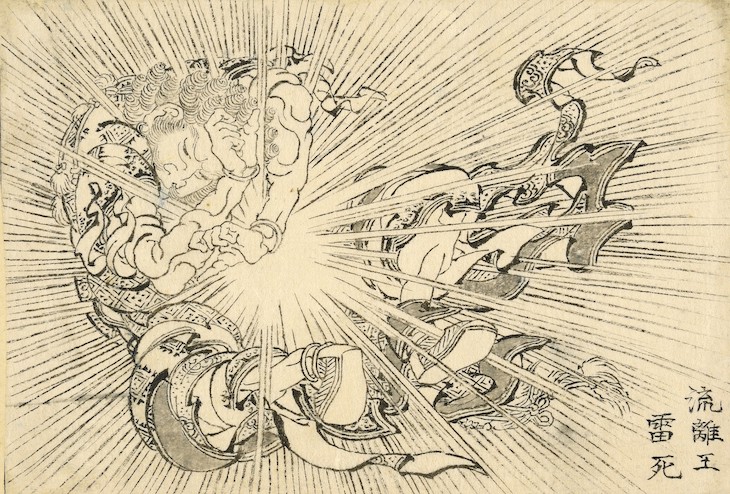
Virudhaka (Ruriō) killed by lightening (1829), Katsushika Hokusai. Photo: © The Trustees of the British Museum
Herzog August Bibliothek, Wolfenbüttel
Album Amicorum (17th century), Philipp Hainhofer
Few other art books over the course of history can claim contributors as grand as the Holy Roman Emperor Rudolf II, Cosimo de’ Medici and King Christian IV of Denmark – but over the course of his distinguished 50-year career, the Augsburg-born diplomat and art dealer Philipp Hainhofer (1578–1647) collected inscriptions from these and many others in his ‘friendship book’. Sumptuously illustrated with drawings commissioned by these European dignitaries, the album is a fascinating insight into early modern political culture – and has now been acquired through auction at Sotheby’s by the Herzog August Bibliothek in Wolfenbüttel.

Page from the Album Amicorum (17th-century) of Philipp Hainhofer, bearing an inscription by Rudolf II, Holy Roman Emperor. Photo: © Herzog August Bibliothek Wolfenbüttel (HAB)
ICA Miami
More than 75 works of contemporary art
The ICA Miami has announced the acquisition of more than 75 works by a mix of established and emerging contemporary artists, among them the American painter Gina Beavers, the Cuban painter Tomás Esson and the Nigerian-American graphic artist Toyin Ojih Odutola. Several of the works, including new commissions by Chase Hall and Tau Lewis, are the first by the artists to be acquired by a US museum, while together the works reflect the ICA’s commitment to spending 75 per cent of its acquisitions budget on work by artists of colour.
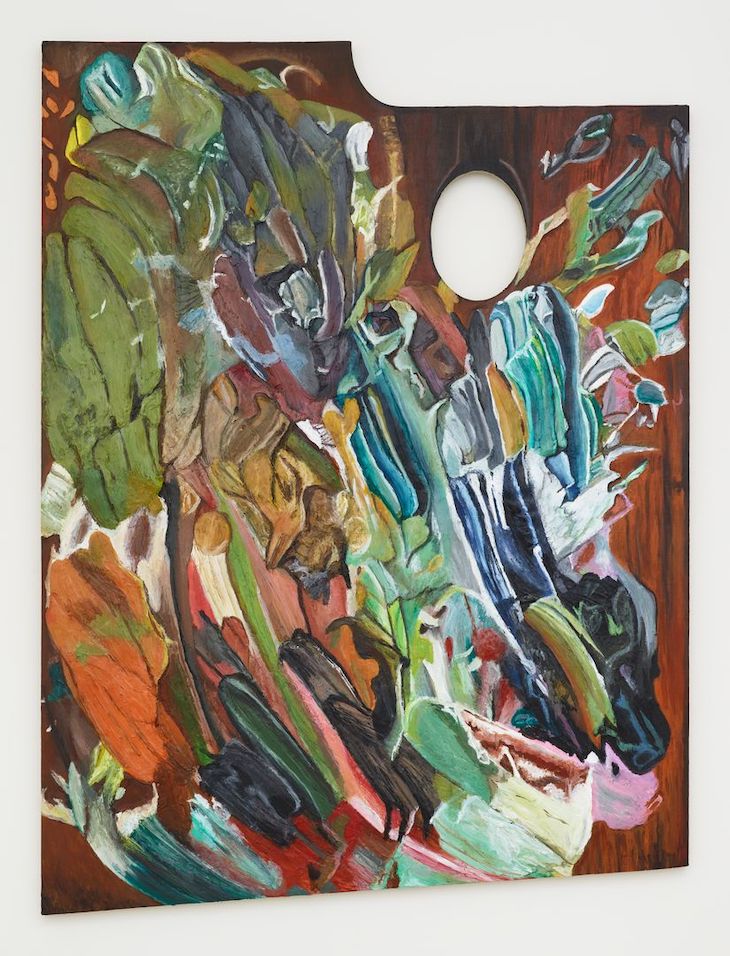
Van Gogh Palette (2018), Gina Beavers. Courtesy ICA Miami
Meadows Museum, Southern Methodist University, Dallas
Six works of Spanish art
Building on its exceptional collection of Spanish art – begun in the mid 20th century by the museum’s namesake and founder, Algur H. Meadows – the Meadows Museum at Southern Methodist University in Dallas has acquired five drawings from the 17th and 18th centuries, as well as a sculpture of 1884–87 by the Catalan modernist Agustín Querol y Subirats. The drawings include a depiction of The Death of Mary Magdalene by the Golden Age master Alonso Cano, while the intimate terracotta depiction of a baby learning to roll over is the first work by Subirats to enter the museum’s collection.
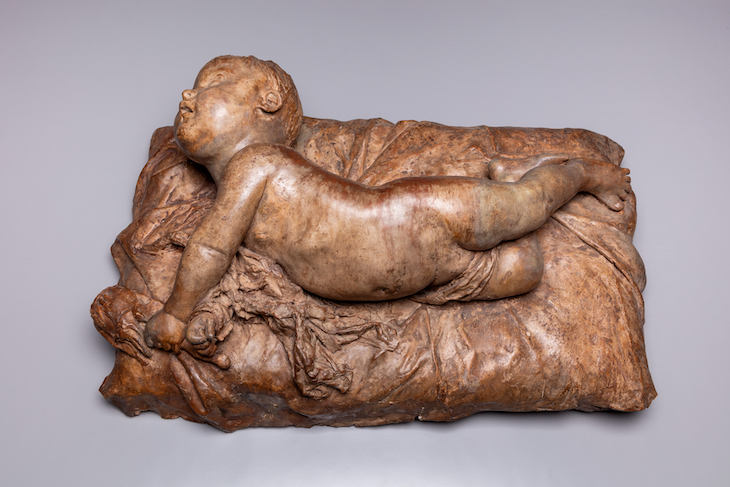
A Baby Rolling Over (1884–87), Agustín Querol y Subirats. Meadows Museum, Southern Methodist University, Dallas. Photo: Kevin Todora
Noordbrabants Museum, ’s-Hertogenbosch
Head of a Woman (1885), Vincent van Gogh
This work is one of a number of studies of heads completed by Van Gogh in Nuenen – part of a process of honing his modelling of the figure in paint that would culminate in The Potato Eaters (1885). One of the few studies from this time to be given a coloured background, it is also the first portrait among the Noordbrabants Museum’s significant holdings of work by the Brabant-born artist.

Head of a Woman (1885), Vincent van Gogh. Het Noordbrabants Museum, ’s-Hertogenbosch
Uffizi Galleries, Florence
455 works from the collection of Carlo del Bravo
Described by Uffizi director Eike Schmidt as ‘one of the most important and substantial donations to the museums of Florence since the Second World War’, this trove of more than 450 paintings and drawings, spanning the past five centuries, was amassed by the art historian Carlo del Bravo. The collection was donated to the museum by Del Bravo’s heir, Lorenzo Gnocchi; it includes works by Ingres, Giovanni Battista Foggini and Pio Fedi, as well as Rosso Fiorentino’s depiction of The Infant St John the Baptist (c. 1520) – the final work by the great Mannerist painter to have remained in private hands.
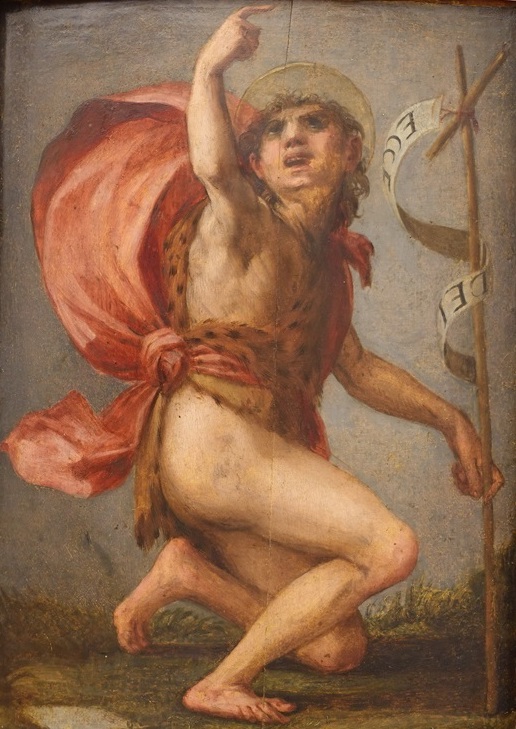
San Giovannino (The Infant St John the Baptist) (c. 1520), Rosso Fiorentino. Uffizi Galleries, Florence
Toledo Museum of Art
A Sea View (c. 1907–17), Hugo Simberg
The Finnish painter Hugo Simberg is best known for his macabre, otherworldly fantasies – most famously, The Wounded Angel, voted Finland’s national painting in 2006. While at first glance this seascape, painted at the summer resort of Simberg’s family on the Baltic coast, seems innocuous enough, there are a number of Symbolist touches – the witchlike tails of the clouds; the footprints on the deserted beach – that lend it an aura of mystery. It is the first painting by a Finnish artist to enter the collection of the Toledo Museum of Art, which has also recently announced the acquisition of its first 19th-century Italian painting: Giovanni Battista Camuccini’s Ariccia, the Porta Napoletana with the Palazzo Chigi (c. 1840).
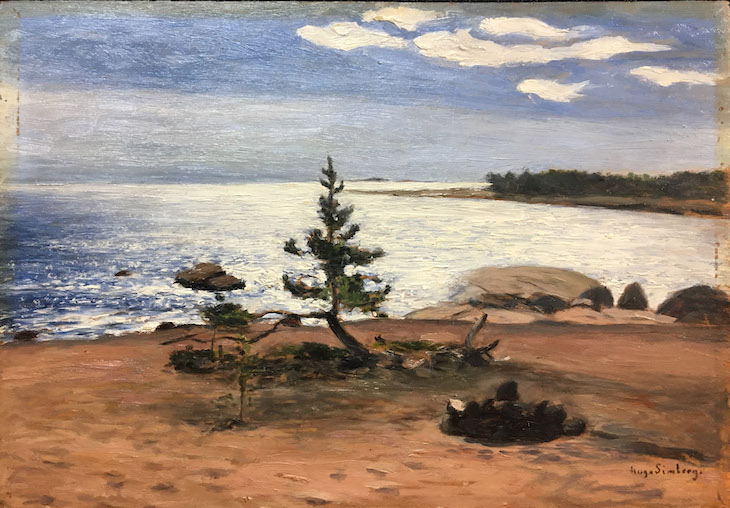
A Sea View (c. 1907–17), Hugo Simberg. Courtesy Toledo Museum of Art














![Masterpiece [Re]discovery 2022. Photo: Ben Fisher Photography, courtesy of Masterpiece London](http://zephr.apollo-magazine.com/wp-content/uploads/2022/07/MPL2022_4263.jpg)
‘Like landscape, his objects seem to breathe’: Gordon Baldwin (1932–2025)